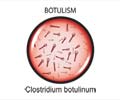Feeling unwell after a bad meal? Learn effective recovery strategies to get your gut feel better fast.
- Rehydrate to combat dehydration caused by vomiting and diarrhea
- Introduce bland foods gradually to ease your digestive system back to work
- Consider natural remedies like ginger and probiotics to soothe your gut
Food poisoning
Go to source).
Most food poisoning & indigestion cases resolve within 3 days! #digestivehealth #feelbetterfast’
Understanding the Culprit
Food poisoning occurs when harmful bacteria, viruses, or toxins contaminate food or drink. Symptoms like nausea, vomiting, diarrhea, and stomach cramps typically appear within a few hours to a few days of consuming the contaminated item. Indigestion, on the other hand, is caused by overeating, consuming greasy or spicy foods, or even stress. While less severe, it can lead to bloating, heartburn, abdominal pain, and nausea.The Importance of Rehydration
Dehydration is a major concern with both food poisoning and indigestion, as vomiting and diarrhea can rapidly deplete your body fluids. Rehydration is your top priority. Start with small, frequent sips of water, clear broths, or electrolyte solutions. Avoid sugary drinks or caffeinated beverages, as they can worsen your symptoms. Pedialyte or similar rehydration solutions can be particularly helpful, especially for children or those experiencing severe dehydration.Giving Your Stomach a Rest
Resist the urge to eat right away. Let your stomach settle for a few hours. Once you feel ready, start with bland, easily digestible foods like plain crackers, toast, bananas, or rice. These foods are gentle on your digestive system and provide essential nutrients to kickstart recovery. Gradually reintroduce other foods like yogurt, apple sauce, and steamed vegetables as you tolerate them.Certain foods and drinks can help soothe your digestive tract. Ginger is a natural anti-inflammatory and nausea reliever. Ginger tea or sucking on ginger candies can be beneficial. Peppermint tea is another good option, known for its calming effect on the stomach. Probiotics, which are live bacteria that promote gut health, can also be helpful in restoring your digestive balance. Consider taking a probiotic supplement or consuming yogurt with live cultures.
Combating Nausea and Vomiting
If you're experiencing nausea or vomiting, over-the-counter medications like Pepto-Bismol or Gravol can be helpful. These medications can help settle your stomach and reduce nausea. However, consult your doctor before taking any medication, especially if you have any underlying health conditions.Your body needs all its resources to fight off the infection or recover from digestive discomfort. Getting adequate sleep allows your body to repair itself and restore energy levels. Aim for at least 7-8 hours of sleep per night while recovering.
When to Seek Medical Attention
While most cases of food poisoning and indigestion resolve within a few days, there are situations where seeking medical advice is crucial. If your symptoms persist for more than 3 days, you experience severe abdominal pain, bloody stools, high fever, or signs of dehydration (extreme thirst, dizziness, sunken eyes), consult your doctor immediately. Additionally, if you have any underlying health conditions or are immunocompromised, it's best to seek medical attention for even mild symptoms.Preventing Future Episodes
Here are some tips to minimize your chances of experiencing food poisoning or indigestion in the future:- Practice proper food hygiene: Wash your hands thoroughly before handling food and cooking. Ensure proper food storage and preparation techniques to prevent contamination.
- Be mindful of food expiry dates and avoid consuming spoiled food.
- Be cautious when eating out, especially in unfamiliar places.
- Manage stress levels: Stress can contribute to digestive issues. Practice relaxation techniques like yoga or meditation.
- Listen to your body: Avoid overeating and choose healthy, well-balanced meals most of the time.
"The doctor of the future will give no medicine but will interest his patients in the care of the human frame, in diet, and in the cause and prevention of disease." - Thomas Edison
Reference:
- Food poisoning - (https://www.mayoclinic.org/diseases-conditions/food-poisoning/diagnosis-treatment/drc-20356236)
Source-Medindia
















